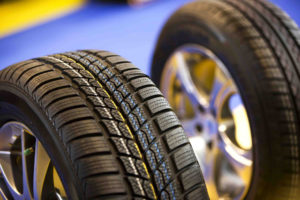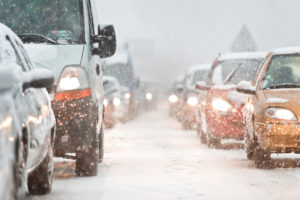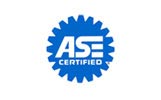Tips That Could Help You Increase Your Car’s Lifespan
 A car’s lifespan is affected by many factors. Many Colorado cars on the road today will last their owners many years or even decades with the help of frequent Greeley car maintenance, but with improper maintenance and care, those same cars could be off the road in less than five years. Maintenance and repairs can be costly, but they usually outweigh the cost of a broken-down car that won’t run.
A car’s lifespan is affected by many factors. Many Colorado cars on the road today will last their owners many years or even decades with the help of frequent Greeley car maintenance, but with improper maintenance and care, those same cars could be off the road in less than five years. Maintenance and repairs can be costly, but they usually outweigh the cost of a broken-down car that won’t run.
Many car owners are unwittingly shortening their car’s lifespan with their maintenance habits, or lack thereof. Here’s how you can improve your car’s lifespan with responsible, everyday practices and habits, and how you could be shortening your car’s lifespan with detrimental habits:
Improve Your Car’s Lifespan with Car Maintenance
Regular check-ups are the key to maintaining things like oil levels and quality, transmission fluid, and brakes. Your oil will start to lose its effectiveness after a few thousand miles, so replacing it often is a part you can play to keep your car on the road.
Aside from regular maintenance check-ups, you should also consider below tips that could help you increase your car’s lifespan:
- Break in your new car and be gentle. Cars, just like shoes or baseball mitts, need to be broken in a bit before they reach their peak efficiency. If you bought a new car recently, keep the engine in the lower RPM range for the first 1,000 miles, if you can. This may sound oxymoronic, but you should also vary your speeds and gears to utilize your car’s full range of performance.
- Warm your cold engines. You probably already know that cold weather, i.e., below freezing, is not the best for your engine. Oil becomes thick and sluggish, battery charges aren’t as strong, and gasoline burns differently. Idling in your car until your cold engine light turns off isn’t the best way to warm your engine up. Idling warms your engine, but slowly, because it’s not working very hard. Instead, sit for a minute (or five if the temperature is below zero), and drive slowly for a few blocks to let your engine warm up efficiently.
- Watch your speed. Speeding may sometimes be necessary. When everyone around you is speeding, it’s actually safer to match their speed, even if it’s above the limit. However, egregiously speeding everywhere you go makes your engine work harder than normal by pumping and using that excess fuel, forcing the pistons and the many other moving parts in your car’s engine to work at faster-than-optimal speeds, which can lead to faster wear and tear on many engine components.
Mistakes that Shorten Your Car’s Lifespan
Looking at your car’s lifespan from the other direction, here are some common mistakes car-owners make that shorten the lifespan of their vehicles and send them to car mechanic experts more frequently:
- A messy interior or exterior. It’s usually what’s on the inside that counts for proper car maintenance, but excessive dirt and grime on the exterior or interior of your car can cause excessive wear and tear in your engine as all those dirt particles enter your system. You should also consider the psychological effects of keeping your car clean. If you put in the work to keep your car spiffy, you’ll be more likely to get regular tune-ups and maintenance.
- Not checking your levels. Regular maintenance is the key to avoiding most costly engine problems, but you can check your tire pressure, oil levels, and transmission fluids yourself. If you don’t have a tire gauge, you can usually find one at an air fill-up station for tires.
- Ignoring symptoms of engine damage. If you hear an unusual rattle in your engine or any other sound it’s not supposed to make, take it in for a check-up as soon as you can. Catching engine trouble early is the best way to avoid serious damage in the future, as the engine problem worsens.
It’s Up to You
Maintenance shops can help you make repairs and avoid even costlier work in the future, but there’s plenty you can do to help your car stay on the road longer.
Looking for reliable Greeley mechanics to provide the maintenance your car needs? Contact us today.
The Five Telltale Signs That Your Car Needs a Mechanic
 How do you know if your car needs a mechanic visit? Aside from regularly scheduled tune-ups and top-offs, your car will periodically need to be checked out by a Greeley auto repair professional to fix certain issues and prevent irreparable damage. In most vehicles, a small problem can soon turn into a catastrophic one quickly, so visiting a mechanic as soon as possible is important.
How do you know if your car needs a mechanic visit? Aside from regularly scheduled tune-ups and top-offs, your car will periodically need to be checked out by a Greeley auto repair professional to fix certain issues and prevent irreparable damage. In most vehicles, a small problem can soon turn into a catastrophic one quickly, so visiting a mechanic as soon as possible is important.
Here are five symptoms you should pay attention to and seek the help of an auto repair professional if you see them in your car:
Smoke Coming From Under the Hood
You probably already know that smoke coming from under your hood is never a good sign. Sometimes, smoke coming from your exhaust pipes can also show potential damage to the engine or other problems.
If you notice that blue smoke is coming from your exhaust pipe or your hood, stop your car as soon as possible and get a tow to the garage. Blue smoke means engine oil is leaking. Low oil levels can lead to serious engine problems and could mean thousands of dollars in repairs.
If you notice white smoke coming from your hood or an excessive amount coming from your tailpipe, it’s probably steam. Your engine is overheated. While this isn’t as serious of a problem as leaking oil, you’ll need to wait for your engine to cool down before you can add coolant. Still, you should seek professional help to find out why your engine overheated in the first place.
Check out these tips on finding a trusted, professional mechanic.
Certain Bad Smells
No one’s car will smell like fresh alpine valleys or roses, but certain smells can mean engine trouble. If the inside of your vehicle ever smells like you’re standing right behind your car’s tailpipe you’re probably breathing carbon monoxide, a highly toxic and potentially deadly gas. Roll your windows down on your way to the mechanic.
If you smell burning rubber, it means you burnt out your tires (you’d know it if you did this) or your drive belts or accessory belts are worn out or damaged. It could also mean that a rubber hose is dislodged and melting.
Unsettling Noises
If you hear a tapping or popping sound, it could be a problem with your engine’s cylinders. If you hear a grinding noise when you start your car, it could be your starter motor. Grinding when you shift gears is a sign that you could need a transmission replacement.
Warning Lights
You can take warning lights on your dashboard with a grain of salt sometimes, but there are a few lights that you should take heed of immediately: Check Oil/Oil Level Low, Oil Pressure Low, and Check Engine. Oil levels and pressures are very important because your oil prevents your engine’s various moving parts from rubbing against each other, causing serious damage. If you’re unsure of how to ameliorate your oil warning light, take your car to a mechanic.
That pesky Check Engine light can mean any number of things, from not screwing your gas cap on properly the last time you re-fueled to your pistons are about to fly through your hood. After you’ve checked routine things like gas caps and oil levels, take your car in if the Check Engine light doesn’t turn off.
Jerky Driving
If your car seems to lurch and stop when you’re not applying the brake, it’s a good sign of engine trouble. Not having full control of the accelerator can cause serious driving problems, so it’s a good idea to have it checked out as soon as possible.
Watch for these telltale signs of engine trouble, and if you see these signs, don’t hesitate to contact a mechanic immediately. When your car needs a mechanic, waiting too long could further the damage.
Looking for a mechanic in Greeley? Call us today.
Tips on When to Replace Your Tires
3 Easy Ways To Tell If The Tires On Your Car, Truck or SUV Need To Be Replaced Before It’s Too Late.
 Tires. Of all the most common problems with cars, tires are often the most overlooked. But, if your car doesn’t drive smoothly, wobbles, or makes curious noises at top speeds, it could be because of your tires. Your tires are where your car meets the road. They’re your car’s first and only touchpoint to the street. When they wear down, they can cause all kinds of wearing problems that can lead to more expensive repairs than simply replacing them would have been. Tires can be underinflated, overinflated, worn down, leaky, and more. While you don’t necessarily need to replace your tires to solve these common problems, there are plenty more scenarios when replacing your tires is the most cost-effective and safe thing you can do.
Tires. Of all the most common problems with cars, tires are often the most overlooked. But, if your car doesn’t drive smoothly, wobbles, or makes curious noises at top speeds, it could be because of your tires. Your tires are where your car meets the road. They’re your car’s first and only touchpoint to the street. When they wear down, they can cause all kinds of wearing problems that can lead to more expensive repairs than simply replacing them would have been. Tires can be underinflated, overinflated, worn down, leaky, and more. While you don’t necessarily need to replace your tires to solve these common problems, there are plenty more scenarios when replacing your tires is the most cost-effective and safe thing you can do.
Here are a few helpful tips from Greeley auto repair and tire experts:
The Penny Test
You may have heard of the ‘penny test,’ in which you insert an Abraham Lincoln penny into the tread groove of a worn tire. If the tread covers Lincoln’s head and you notice no adverse effects driving in snow, slush, or rain, you’re good to go. Mechanics test tires for remaining depth of tread grooves. When the remaining depth reaches 2/32 inches, it’s time for new tires.
You can do a penny test at home, obviously, but the main test you should pay attention to is how the car brakes and maneuvers on wet or slick roads.
What Are Tire Grooves for?
Tire tread grooves are mainly for managing wet conditions on the road. The treads direct water, snow, and ice away from the tires and out from under them. Driving on dry roads with worn-down or even bald tires won’t give you much trouble, usually. Just look at the racing slicks stock cars use in races.
If your tread is getting low, you might not notice a difference until you have to brake suddenly or you’re driving in wet or icy conditions. About nine percent of all collisions in the US are tire-related, according to the National Highway Traffic Safety Administration.
Which Tires Should You Buy?
That depends on the car and what you use it for. To help determine that, let’s run down a few tire terminology basics:
All tires have a speed rating, as denoted by the letters S (112mph) through Y (186mph). This is the tire’s maximum speed when carrying a load. Higher speeds require better grip. Aside from the speed rating, tires also come in different sizes, which are written like this: 215/60R16. The 215 in this example is the cross-section width, which is the widest distance from one sidewall to the other. The 60R is the ratio of sidewall height to tire width, and the 16 is the size of the wheel in inches. Most cars list recommended tire size and specifications in their owner’s manuals.
As for tire type, if you’re driving on rough roads often or carrying around large payloads, it’s a good investment to get a quality type of tire, or even a specialty tire that can help you in adverse conditions. Analyze how you use your car and how many miles it’s been since your last tire change to determine which kind of tires you need.
Looking for a trusted tire and mechanic shop in Greeley? Call us today.
Winter Service & Auto Repair For Your Vehicle | Autotailor in Greeley Can Help!
 Complete Your Winter Auto Repair Or Maintenance Before The Cold Hits In Greeley, CO
Complete Your Winter Auto Repair Or Maintenance Before The Cold Hits In Greeley, CO
Another Northern Colorado Winter is rapidly approaching and you know what that means: the necessity of a winter auto repair may creep up on you when you’re least expecting it! Extreme drops in temperature, subzero wind chill, snow and ice are just some of the challenges we as Colorado drivers face during the upcoming season and your vehicle takes the brunt of it all. If you’re due for routine maintenance or repair, it’s imperative that those items be completed before the weather gets worse as Front Range weather conditions and drastic weather changes can cause that small issue in your car to rapidly magnify into a much bigger issue. It’s also a good idea to complete a simple self-prep to your vehicle to ensure it’s in tip-top condition all winter long. Check out these auto service tips from the experts at Autotailor.
Tires Service Center & Sales
Check your tires for thread depth and air pressure. Overtime your tires become worn out and the thread depth becomes uneven. It’s important to check the depth to make sure your tire can keep traction and avoid slips on wet and icy roads. Air pressure is just as important! When the temperature drops by 10 degrees your tires drop a pound of air. Check your tires and spare tires when the temperature changes drastically. Need or replace the tires on your car, truck or van? Autotailor provides a complete line of brand name tires all competitively priced. Call us today to schedule your winter auto repair tire service appointment!
Car Battery Service
A battery tends to last up to 3 years. If you’re nearing that life cycle you should bring your car to our auto repair center in Greeley, CO to ensure it’s fully charged. If the battery isn’t fully charged it can freeze and die when the temperature drops. One of our certified Greeley Autotailor technicians can check if you need to recharge or buy a new battery.
Automotive Oil Change
You should regularly bring your vehicle in for routine auto repair services and an oil changes. However, if you haven’t kept up with it, the time to change it is now! The oil is what keeps your car running smoothly and efficiently! When first placed in your car it’s thin and a light honey color. Overtime the oil becomes contaminated, which causes it to thicken and become sticky. This makes the engine in your car work harder, and may lead to expensive auto service repairs.
Heating System Repair
When you have to get up early on cold mornings you want make sure you’re at least warm in the car. Now is the time to make sure that the air system is working properly and that your filters are changed. Not sure what to look for or think your car may be having issues? Give us a call or contact us online today! Autotailor in Greeley, CO can help!
Headlight Replacement
Cold and snowy weather can bring foggy, freezing visibility to your drive. Check and replace your bulbs and headlights at our Greeley auto service center. We even provide headlight restoration services to ensure you have clear sight of the road.
Summer Driving Tips
 Greeley Auto Service Repair Center
Greeley Auto Service Repair Center
Summer is coming, the kids will be out of school, the sun will be out, and it’ll be time for a vacation. Whether you’re planning a long trip or simply need to keep your car running for one more summer, there is going to be a risk of the engine overheating. In addition, long trips with heavy loads can quickly use up gas, so it’s best to play it safe this summer.
Here are a few summer driving tips to get you started.
Tune Up the Vehicle
Of main concern when driving in the summer is the risk of the engine overheating since that can very quickly ruin your car. Preventing this begins with an automotive checkup. Mainly, you’ll want to look at:
- The engine cooling system, including the radiator, coolant levels, belts and hoses, fans, water pump, thermostat, and the heater core
- Your tires, especially since long trips will put a massive strain on them
- The steering, suspension, and transmission systems
- The oil
- Air conditioning, which is connected to the engine cooling system on certain models
The majority of car breakdowns can be prevented with proper vehicle maintenance, so making sure your car gets the service it needs prior to heading out on vacation is an absolute must.
Watch Your Speed
On trips where you’re carrying a heavy load (such as a trailer for a camping excursion), you’re putting a lot of strain on your car. Slowing down a little will help keep your engine from overheating from the sheer power it takes to haul that much weight around, often against the wind or uphill. In addition, you’ll not only keep your engine from overheating, but you’ll also save on gas.
Watch the Temperature Gauge
The temperature gauge is there for a reason. If you notice the indicator starting to rise, there are a few things you can do to prevent a disaster. These include:
- Turn on the heat: This will divert some of the heat from the engine into the cabin. The drive may get uncomfortable, but doing this can prevent a breakdown.
- Slow down: Again, the weight your car has to move around will put strain on the engine, causing it to work harder and overheat. Reduce speed and let the engine cool off a little.
- Pull over: If the indicator is reaching the red zone, pull over and let the engine cool. Otherwise, you run the risk of causing it to overheat, which will ruin the engine and result in costly repairs, not to mention a huge damper on your vacation.
Keeping an eye on the temperature gauge will help ensure you get to your destination safely without the need for repairs.
Pack for an Emergency
Finally, before you get out on the road this summer, pack a few items in the trunk, such as:
- Extra coolant
- Extra oil
- A spare tire
- Duct tape
- Tools
- Flares
- A jack
Another thing that probably goes without saying is to keep your cell phone handy while driving. Just don’t use it until you pull over.
With the right precautions, you can make sure your car makes it through the summer without a hitch. If it does break down, packing a few emergency items will at least ensure you get the help you need while keeping everyone safe.
If you find yourself in need of auto repair services in Greeley, we would love to hear from you.
 Complete Your Winter Auto Repair Or Maintenance Before The Cold Hits In Greeley, CO
Complete Your Winter Auto Repair Or Maintenance Before The Cold Hits In Greeley, CO Greeley Auto Service Repair Center
Greeley Auto Service Repair Center


